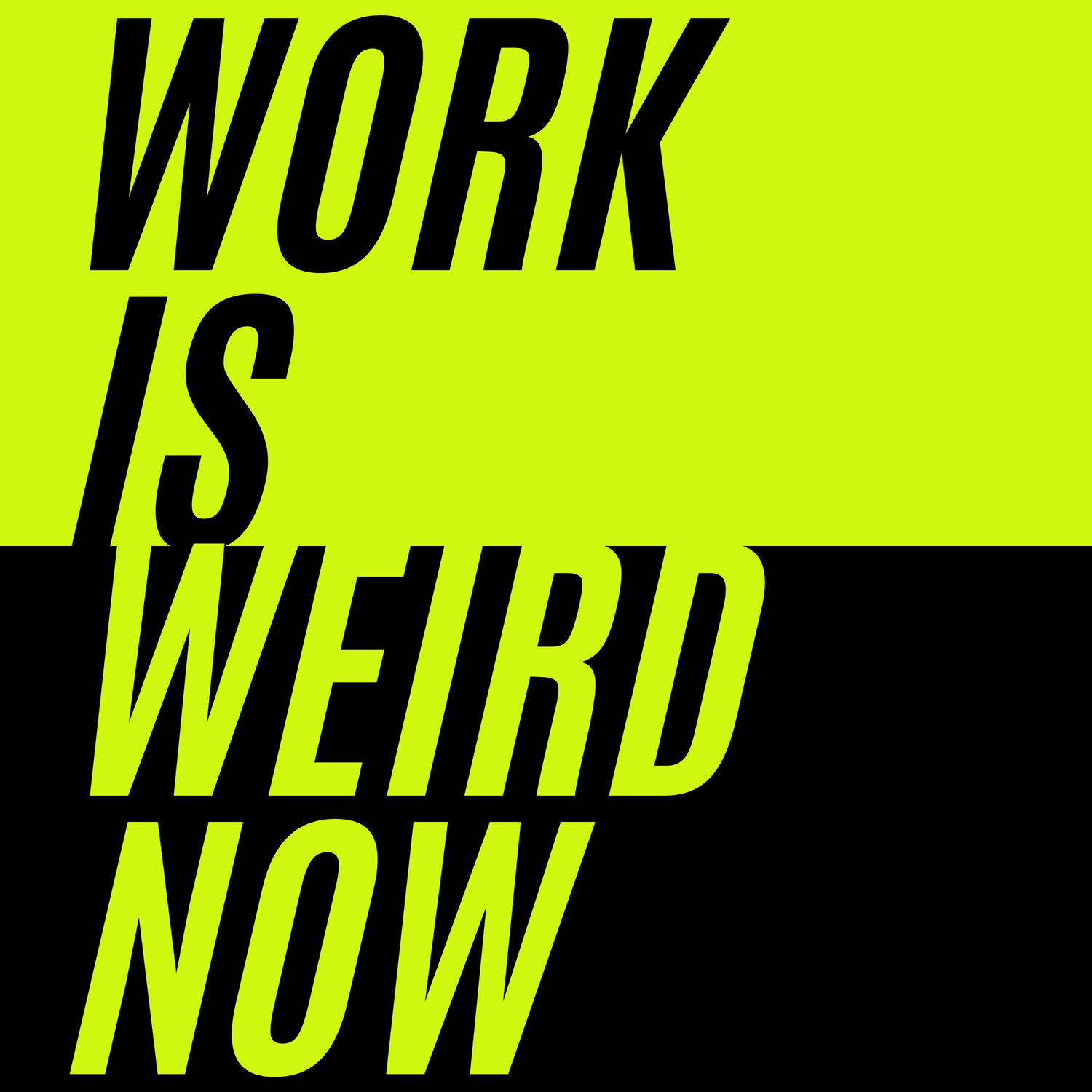why do organisations treat employees like robots?
When we invited Christian Hunt onto the Work Is Weird Now podcast, we expected insight into risk and human behaviour. What we didn’t expect was a story about a calculator museum in Cologne, or a lively debate about whether boredom might actually be good for us.
Christian is the founder of Human Risk, a behavioural science consultancy that helps organisations think more intelligently about the risks (and rewards) of human decision-making. He’s also a former regulator, ex-banker, podcast host, and author who’s turned his career into one long curiosity experiment.
Here are some of the ideas we loved from our chat—and why we think they matter right now.
1. Work isn’t newly weird—it’s just newly visible
Christian challenged our central premise from the get-go: work isn’t weird now, it’s always been weird. The difference is we’ve finally started pointing at it and asking, “Wait, why do we do it like that?” Whether it’s the agricultural legacy of the school calendar or the 9-to-5 structure of knowledge work, we’re operating within systems designed for a world that no longer exists. COVID, in Christian’s view, simply accelerated a much-needed reckoning.
“We’re like the kid in the Emperor’s New Clothes, just starting to say out loud, ‘This is not normal.’”
2. Organisations often forget to design for humans
Compliance, risk, HR, cybersecurity, ethics training—these are human issues. But most businesses approach them with a mechanical mindset. Christian describes it as “the employment contract fallacy”: the idea that because you pay someone, you can control them. Legally that might be true. Behaviourally? Not so much.
He uses induction training as a classic example. We spend so much time wooing new hires—then kill the vibe with a tedious “Welcome to BigCo” PowerPoint. It’s our first opportunity to engage someone as a human, and we waste it by treating them like a liability.
“You wouldn't treat your customers like this—why is it okay to treat your employees that way?”
3. 100% compliance isn’t possible—and it’s not even desirable
One of the more surprising takeaways from our conversation: not every rule is equally important. And not every broken rule is equally risky. Christian makes the case for triaging risk and nudging humans toward the most important outcomes—like preventing harm, protecting data, or avoiding catastrophic PR failures.
Expecting perfection sets everyone up for failure. Designing systems that embrace some level of failure (in the right places) is not only more realistic—it can actually be beneficial.
4. Self-employment reveals how little of corporate life actually works for humans
After years in senior corporate roles, Christian became self-employed. What surprised him most? Just how much of the traditional workday wasn’t serving anyone. Why are we still pretending everyone’s most productive between 9 and 5? Why do performance reviews keep trying to mould people into a standard shape? Why is “doing less of what you hate” considered a radical act?
“There is no point behaving as if you’re employed when you’re self-employed.”
5. AI doesn’t just change how we work—it forces us to ask what humans are for
The rise of AI is accelerating the human risk landscape. But it’s also posing deeper existential questions. As Christian put it, we’ve built whole systems around the fact that humans are fallible—and now we’re asking those same humans to regulate superintelligence.
He’s neither doomsday nor evangelist. He sees AI as both a powerful creative tool and a profound risk. But crucially, he believes our most human traits—judgement, nuance, emotional intelligence—are about to become the most valuable and the most dangerous. Why? Because that’s the territory AI can’t easily enter.
“Technology is pushing humans into roles where we double down on being human. That’s when we’re at our best—and at our riskiest.”
6. We need to build jobs around people, not the other way around
The conversation ended on a powerful idea: why don’t we design jobs the way football teams build formations—around the actual talent on the pitch? Instead, most companies hire humans like multi-tools, expecting them to juggle tasks that don’t match their strengths or interests.
The future of work, Christian argues, is about crafting roles for humans. That might mean breaking down the idea of a “full-time job,” letting people do more of what energises them, and creating space for more fluid, purpose-led careers.
“Stop thinking in terms of work or not-work. Think about life. Design systems that help people flourish—then watch what happens.”
Connect with Christian Hunt
🔗 Website: www.human-risk.com
💼 LinkedIn: Christian Hunt on LinkedIn
🎙️ Podcast: The Human Risk Podcast (available on all major platforms)
📖 Book: Humanizing Rules – available via his website
